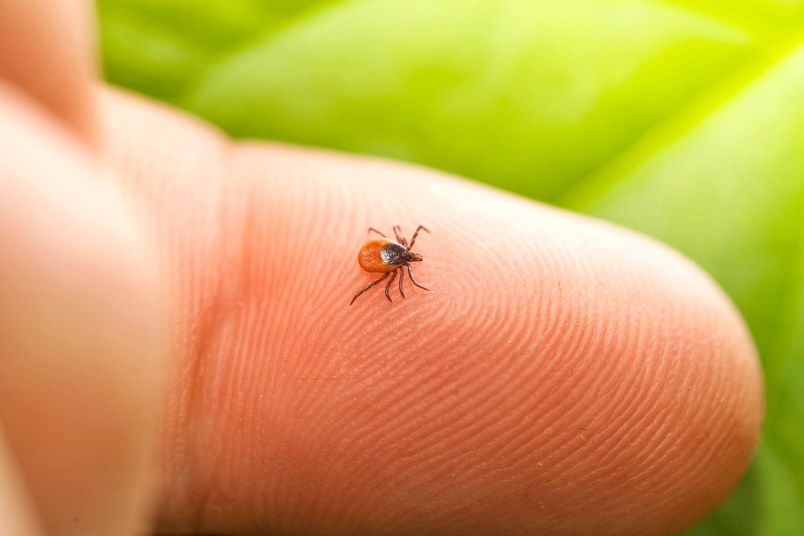THUNDER BAY — "From the ticks' point of view, it's going to be a great season, but for us, we're not going to be too happy."
That's how Ken Deacon, coordinator of the Thunder Bay District Health Unit's vector-borne disease program, describes the outlook for blacklegged ticks this year.
Deacon said weather conditions in the region were pretty ideal for their survival through the winter.
Blacklegged ticks, also known as deer ticks because of their preferred adult animal host, may carry Lyme disease, and can infect humans by latching onto them.
Last year, about 10 per cent of the ones that were checked through the TBDHU for Lyme disease bacteria tested positive.
"We had an early snowfall which means they were insulated while they overwintered on the ground or in leaf litter. This spring was late, but even though we did have [recent] frost, they can survive that without a problem, so there should be very little winter kill," Deacon said.
The health unit recently began its annual surveillance program for ticks.
Members of the public have already turned in the first samples.
The TBDHU has also initiated its active surveillance program, in which a staff member drags a white sheet over the ground to capture ticks for analysis for Lyme disease.
Intake was initially suspended due to COVID-19 restrictions, but has now been activated.
A printable form is available on the TBDHU website. On the home page, a search for "ticks" takes you to "Ticks & Lyme Disease". Clicking on "Read more" takes you to a page with a link to information about how to submit a tick for identification.
Deacon said filling out the form ahead of time will expedite the delivery process when presenting a tick at the health unit offices on Balmoral Street.
For the first time since mandatory reporting of Lyme disease symptoms was imposed on local doctors last year, a Thunder Bay resident was confirmed to have a locally-acquired case.
TBDHU officials were not surprised, given that – anecdotally – there had been at least a dozen instances in recent years of area residents going to their doctor with the common symptom of a large bullseye rash.
This year, ticks brought in to the health unit will only be checked to verify they are the blacklegged variety. The TBDHU will also document where they were found, but will not send them to the federal lab in Winnipeg for testing for Lyme disease.
That's because the lab has been overwhelmed with tick submissions from Ontario.
Ticks captured by the TBDHU in its active surveillance program will, however, be transported to Winnipeg for analysis.
